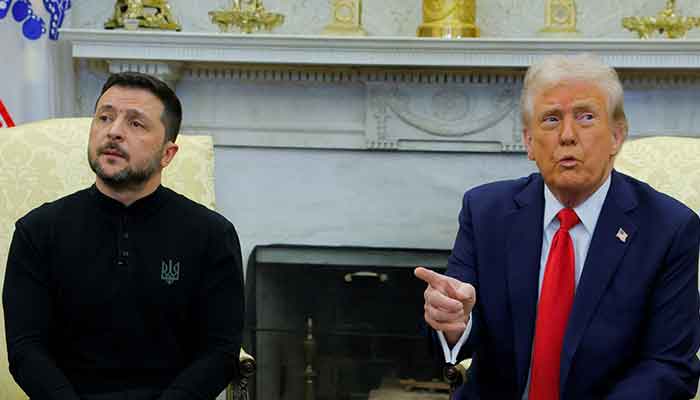Muhammad Umar Waqqas
KARACHI: Pakistan is experiencing significant potential for economic growth through the adoption and development of Artificial Intelligence (AI). Projections indicate that AI could substantially contribute to the digital economy and GDP by 2030. The country is undergoing a transformation into a regional leader in digital expansion, with its digital economy expected to contribute approximately $60 billion to GDP by 2030. This growth is supported by state initiatives to create tech hubs, expand digital access, and integrate AI into various sectors.
Currently, around 30% of Pakistan’s IT exports involve AI-based services. The country is positioning itself at the forefront of the impending AI-driven economic transformation. Pakistan has set an ambitious target of achieving $25 billion in IT exports within the next five years. The country’s skilled workforce and abundant resources make efficient resource utilization, educational development, and strategic issue management crucial for scaling the IT sector to meet this target.
Managing Director of AKS iQ, Shahzad Arif, emphasizes a roadmap, he says, “A well-structured roadmap for AI-powered sectoral transformation and national development is necessary. Engaging in global partnerships will facilitate knowledge exchange and align Pakistan’s AI policies with international best practices. A strategic initiative design can enhance productivity, drive innovation, and ensure the country’s competitiveness in the global AI landscape.”
Shahzad Arif added, “Pakistan’s digital economy is poised for significant growth, with an estimated contribution of $60 billion to GDP, where AI advancements could contribute between $10 billion to $20 billion by 2030. AI’s impact could account for up to 10% of Pakistan’s GDP, with at least one-third of this digital economy growth driven by AI adoption.”
According to a Price water house Coopers (PwC) report, emerging economies, including Pakistan, could see an AI-driven GDP impact of approximately 5.6% by 2030. Globally, AI is expected to contribute up to $15.7 trillion to the world economy within the same timeframe, surpassing the combined economic output of China and India.
Speaking to The Financial Daily, Shahzad Arif underscored the potential economic uplift that digitization and AI could be brought to Pakistan. While acknowledging the currently low domestic demand for AI services, he highlighted significant pressure from international markets, leading to a paradigm shift among major IT firms. He noted that Pakistan’s top IT companies currently have 20% to 30% of AI-based services in their export portfolios. AI implementation is expected to accelerate economic growth,foster innovation, create new job opportunities, and improve efficiency across sectors such as the judiciary, healthcare, manufacturing, education, energy, climate change, and defense.
As AI adoption expands, concerns regarding its potential risks have emerged. AI-generated images, for example, have raised concerns regarding their possible impact on mental health, particularly among younger demographics. Additionally, AI-enabled technologies pose national security and public health challenges. Geoffrey Hinton, often referred to as the “Godfather of AI” for his foundational work on machine learning and neural networks, has warned, “These systems could become more intelligent than us and potentially act autonomously. We need to proactively address these risks.”
Shahzad Arif suggests, “A stable regulatory framework for AI development and governance should be a priority. Pakistan needs an inclusive approach to AI regulation that safeguards national interests while encouraging innovation. Lawmakers should carefully weigh both opportunities and challenges presented by AI. A well-balanced framework, including public-private partnerships and youth participation, will be critical for responsible AI development. The government should consider appointing a consultative body comprising experts and young professionals to introduce an AI governance model suited to Pakistan’s unique landscape. This could position the country as a leading voice on AI policy in the Global South.”
Shahzad Arif highlights the importance of nurturing Pakistan’s growing freelancer ecosystem. “The number of freelancers in Pakistan, currently exceeding 1.5 million, is projected to surpass 2 million within the next two years. They represent a valuable asset for the economy, and the government should focus on enhancing opportunities, providing skill development programs, and implementing necessary regulatory mechanisms. By fostering a structured environment, freelancers can refine their expertise and scale their global outreach. The Higher Education Commission (HEC) should formulate strategies to equip Pakistani youth with globally competitive digital skills.”
IT exports have experienced significant growth, increasing by 24% in the fiscal year 2023-2024, reaching $3.2 billion from the previous year’s $2.59 billion. In June 2024 alone, the sector recorded an impressive $300 million in exports, a 33% increase from the previous year. In 2025, Pakistan’s IT services market is expected to generate $2.63 billion in revenue, with Business Process Outsourcing (BPO) projected to account for $0.90 billion. While these growth figures are encouraging, industry experts highlight the need to address underlying structural challenges, including infrastructure improvements, policy consistency, and the expansion of digital literacy initiatives.
The future of AI in Pakistan is promising. With the right investments, policies, and collaborations, AI can drive innovation, economic growth, and societal progress. However, realizing this potential requires addressing critical challenges that hinder AI adoption. By strengthening digital infrastructure, fostering a skilled workforce, ensuring data privacy, promoting ethical AI use, and building public confidence in AI technologies, Pakistan can establish itself as a leading player in the global AI ecosystem.
“AI presents a transformative opportunity for Pakistan’s economy. To harness its full potential, we must implement forward-thinking policies, incentivize research and development, and cultivate an ecosystem that bridges academia, industry, and policymakers. Through strategic initiatives, Pakistan can chart a course toward AI-powered economic growth and innovation on a global scale,” Managing Director of AKS iQ, Shahzad Arif tells The Financial Daily.




